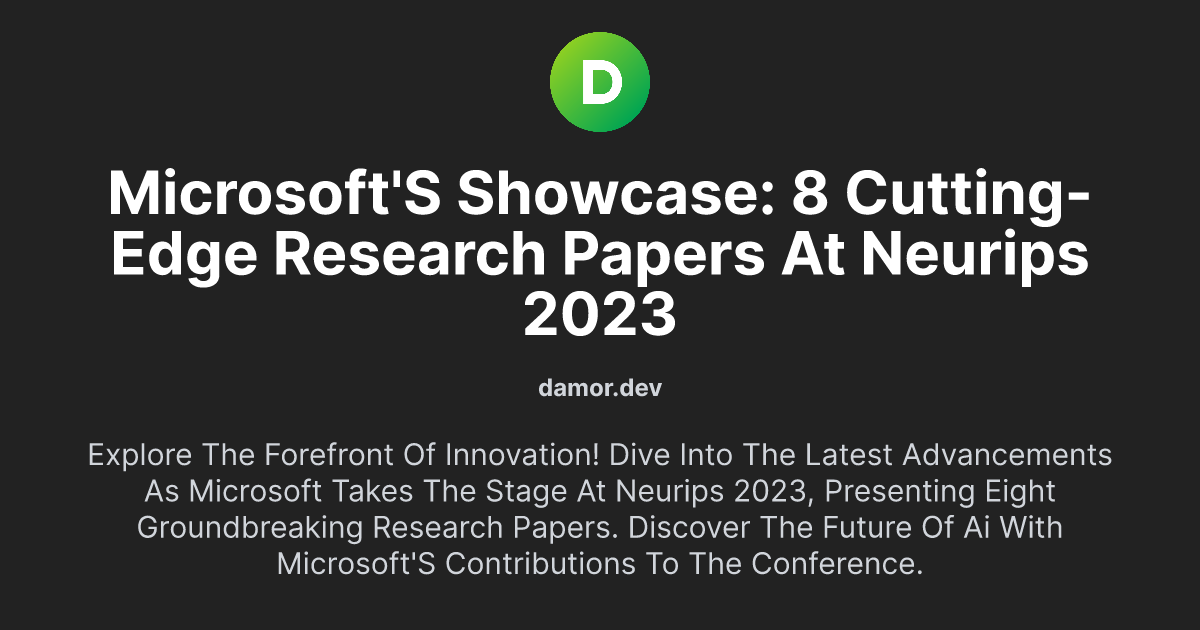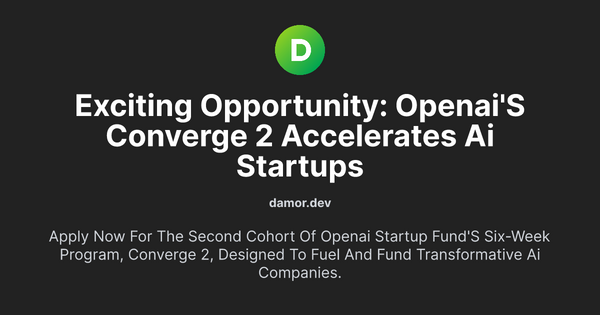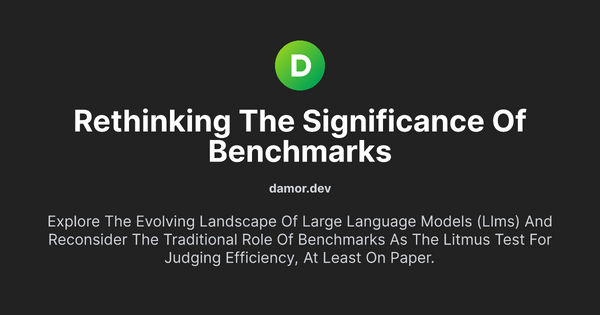Microsoft's Showcase: 8 Cutting-Edge Research Papers at NeurIPS 2023

Microsoft's 8 Exciting Discoveries at NeurIPS 2023
NeurIPS 2023, a significant AI conference, is buzzing with innovation, and Microsoft is at the forefront with eight groundbreaking research papers. Here's a simplified overview of these exciting findings:
1. Auto-Regressive Diffusion (AR-Diffusion):
- Microsoft researchers have enhanced the power of diffusion models, originally used for generating images, to now create text.
- AR-Diffusion, a new approach, excels in tasks like text summarization and machine translation, outperforming other models and doing so remarkably faster (100 to 600 times) for similar results.
- The code is accessible on GitHub for those interested.
2. Context-Aware Machine Translation:
- Focusing on large language models, Microsoft's study delves into the significance of presenting translations in context.
- They introduce Zero-Shot-Context, a method that enhances zero-shot translation performance, making it competitive with prompted translations.
3. TextDiffuser for Image Text Generation:
- TextDiffuser is introduced to improve text generation in images by utilizing a two-step process.
- A model designs text layout, and diffusion models create images, showcasing flexibility and high-quality results with prompts or templates.
- A new dataset, MARIO-10M, containing 10 million annotated image-text pairs, is introduced for evaluation purposes.
4. Unsupervised Machine Translation (UMT):
- Microsoft researchers present a framework for analyzing UMT without parallel data and unrelated source and target languages.
- The study reveals that translation accuracy depends on the complexity of the source language and the commonalities between source and target languages.
5. Gradient Descent Analysis:
- Exploring randomness and step sizes in gradient descent and stochastic gradient descent, Microsoft researchers demonstrate how they affect the regularization of diagonal linear networks.
6. ARMOR: A Reinforcement Learning Framework:
- ARMOR, a novel offline Reinforcement Learning framework, improves policies robustly, remaining competitive with incomplete data coverage and resilient to hyperparameter choices.
7. GRACE: Lifelong Model Editing:
- Researchers propose GRACE, a Lifelong Model Editing method, enabling thousands of sequential edits without degrading model performance over multiple adjustments.
8. Interactive Estimation Framework:
- Scientists introduce the concept of interactive estimation, a framework for learning based on estimating a target's similarity to points queried by the learner.
- They introduce a measure called dissimilarity dimension, aiding in understanding how easy it is to learn in this framework.
These discoveries showcase Microsoft's commitment to advancing AI and making complex concepts accessible to all. If you're curious, the codes for some of these projects are available on GitHub for exploration.


![[Solved] ZlibError:zlib:
unexpected end of file - payload](/content/images/size/w600/2024/02/Screenshot-2024-02-18-143905.png)


